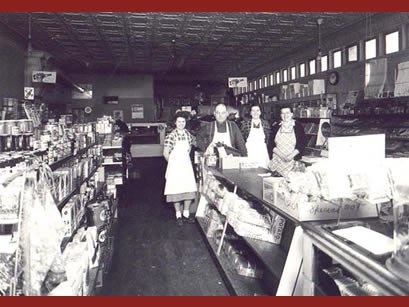From
The City Council is looking to amend the law governing street vendors, with both sides of the debate—vendors and stores—looking for legislative relief. Vendors want the cap on licenses lifted, while neighborhood retailers want to restrict vendors from operating directly in front of their stores.
The leader of the reform movement in the council is Councilwoman Julissa Ferreras-Copeland, who is arguing for a balance. One measure being discussed would limit where vendors could set up shop. For example, Ferreras-Copeland said, the rules might prevent five fruit vendors from working on the same block, or a fruit vendor from setting up in front of a fruit store.
“We have to regulate vendors without hurting the brick-and-mortar [businesses] in our community,” she said.
However, there is one significant roadblock to the vendor-location reform that Ferreras-Copeland appears to be advocating: a 1943 court decision that council lawyers feel restricts their ability to restrain vendors from operating outside of retail stores. Does this little-known ruling tie the council’s hands?
We examined this decision—Good Humor v. New York—carefully. Leaving aside that it is 73 years old, it doesn’t appear that what the court said in 1943 is an insurmountable obstacle to the balance that the council member would like to achieve.
In the first place, the old case was directed at legislation that banned on all street peddling. At the same time, the court also said that the city’s rationale for the ban—restricting competition—was too broad, as peddling was a recognized feature of city life: “Certainly that power is not broad enough to prohibit use of the street for a lawful business, recognized by statute, for the sole purpose of protecting rent payers and taxpayers against competition from others who do not pay rent or taxes,” the court wrote.
But the court also recognized that the city could restrict vendors if it had legitimate reasons that were not directly related to competitive factors. As the court opined, “The question here presented is whether the Local Law is reasonably calculated to promote such ‘other or additional purposes’ …”
One of the most salient criteria the city uses for the restriction of uses in general relates to the issue of public health. In fact, the ancient court decision cites this a number of times. Ironically, when it comes to restricting vending, the city has enacted law that just does that—and uses health as its main justification.
In 2008 the city passed so-called Green Cart legislation that added 1,000 produce peddlers to city streets. However, according to the statute, these carts were only to operate in designated “underserved areas” that the city identified and embedded in the law. As then Department of Health Commissioner Thomas Frieden testified: “Green Cart vendors found operating outside their designated areas will be considered operating without a permit and could have their carts and goods seized.”
The green-carts law underscores the fact that under its broad statutory authority—and in particular to advance public health—the city can restrict vendor locations for the overall public good. There is, however, an even more compelling rationale.
The city’s Fresh Program, designed to increase access to supermarkets, recognized that supermarket preservation is a key to improving health. It stemmed from a study showing many low-income areas across the city were underserved by full-line neighborhood grocery stores. Lack of nutritious, affordable, fresh food in these neighborhoods has been linked to higher rates of heart disease, diabetes and obesity.
Peddlers, by hurting supermarket retention and growth (a produce peddler can cost a supermarket anywhere from $5,000 to $7,000 per week in revenue), harm food markets that sell not only produce but a wide range of other healthful foods. Under the aegis of the promotion of public health—a precedent set by the green carts legislation—the city has wide authority to decide where carts are located.
Legal opinions aside, if the council still feels constrained by the Good Humor decision, it can, through its unique political leverage, negotiate location restrictions with the vendor group that badly wants to have an increase in the number of licenses. Or it can bargain for enforcement that their group would find less onerous.
Any reform, then, of the peddler law that fails to include a restriction on vendor locations as they pertain to supermarkets, green grocers and healthy bodegas is a failure of will that ignores the needs of food retailers and the New Yorkers that rely on them for providing healthy food options.
Brad Gerstman is a spokesman for the New York Association of Grocery Stores.
Read More from

{ 0 comments… add one now }